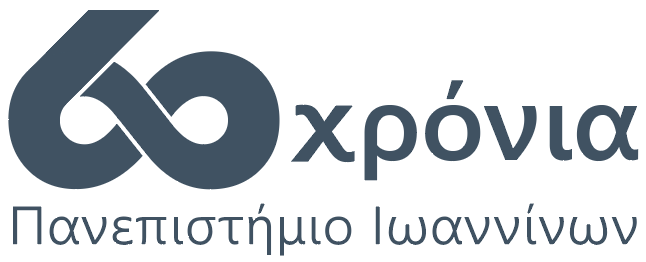Introduction
The Quality Assurance Policy of the Department of Informatics and Telecommunications is fully aligned with the institution's quality assurance policy and focuses on the continuous improvement of the quality of the curriculum, educational, research, and administrative work. It concerns the quality of education, research, networking, and infrastructure provision.
The Department of Informatics and Telecommunications is committed to implementing a quality policy that supports the academic identity and orientation of the study program, promotes its purpose and subject matter, sets, implements, and monitors quality objectives, determines the means, actions, and ways to achieve them, and applies the appropriate internal and external quality procedures with the ultimate goal of continuous improvement.
For this reason, the undergraduate curriculum of the Department is structured and periodically updated with a focus on academic and applied teaching, research, and inquiry. Its updating takes into account scientific developments in the specific research fields it addresses, interdisciplinarity, and the emergence of new cutting-edge subjects. Additionally, it monitors the programs of related departments at other universities in Greece and abroad.
Objectives of Quality Policy
The implementation of the quality policy requires the application of quality procedures that ensure the following objectives:
• the appropriateness of the structure and organization of the study program,
• the achievement of learning outcomes and qualifications in accordance with the European and National Qualifications Framework for Higher Education,
• the promotion of the quality and effectiveness of the teaching work,
• the suitability of the qualifications of the teaching staff,
• the strengthening of the Department's extroversion and international presence, with an emphasis on the recognition of the Department at local, national, and international levels
• the improvement of connections with the local community, the job market, scientific organizations, and the Department's alumni
• the innovative orientation of the undergraduate curriculum, both in terms of methodological innovation (e.g., seminar-style courses) and in terms of courses related to dynamic sectors of the job market
• the promotion of the quality and quantity of research work by academic unit members, and the methods of integrating teaching with research,
• the level of demand for the acquired qualifications of graduates in the job market,
• the quality of administrative and electronic support services provided to students,
• the conduct of annual internal evaluation of the undergraduate study program within the framework of the Internal Quality Assurance System • Quality Assurance System (QAS) in collaboration with the Department's Quality Assurance Unit and the Institutional Quality Assurance Unit.
Committees and Responsible Parties
1. Internal Evaluation Team (IET): Maintains responsibility for monitoring and improving the quality of the Department and study programs. It is appointed by the Department's General Assembly, has a three-year term, and consists of three (3) faculty members of the department. One member is appointed as the team's President.
2. Study Programs Committees: Three (3) distinct committees (Undergraduate Studies Committee, Graduate Studies Committee, and Doctoral Studies Committee), responsible respectively for the undergraduate, graduate, and doctoral study programs. The committees oversee, monitor, improve, and update the study programs and supervise the teaching staff.
3. Committee for Laboratory Teaching Facilities, Building Facilities, Network Facilities, and Security: Supervises the department's facilities, records functional requirements related to teaching and laboratory work. Ensures the physical and cyber security of the Department and its personnel.
4. Ethics Committee: Studies and advises the General Assembly on cases of duty violation, other deviant behaviors such as cheating in exams, intellectual property infringement, plagiarism, etc.
5. Public Relations, Website & Social Media, and Alumni Committee: Organizes the promotion and communication of the Department, maintains and updates the Website and social networks, organizes events, develops partnerships.
6. Departmental Research Committee: Provides the IET with data on the department's research work. Disseminates invitations for participation in research projects, scholarships, collaborations.
7. Internship Committee: Supervises the internships of students, appoints supervising professors, communicates with students, hosting entities, and the internship office of the Institution.
8. Departmental Erasmus+ Coordinator: Promotes and organizes the participation of members in the outward mobility program
Download the Quality Policy


